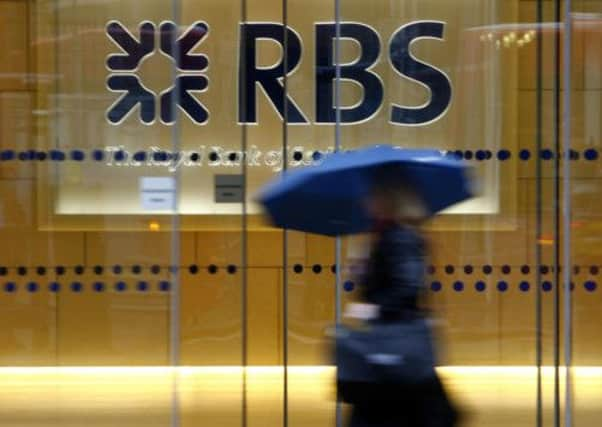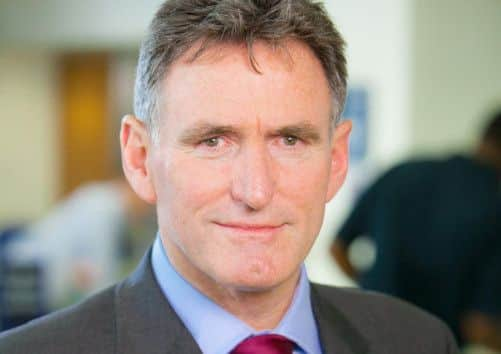RBS step closer to returning £45bn to taxpayer


Outgoing chief executive Stephen Hester said the bank should be in a healthy enough state to start repaying the taxpayer in late 2014, although he said the move would depend on the share price rising above the 407p valuation on the Government’s books.
The former Labour Government was forced to bail out both RBS and Lloyds at the height of the banking crisis in 2008.
Advertisement
Hide AdAdvertisement
Hide AdBut while Lloyds’ share price is now trading well above the 61p breakeven level, RBS’s problems run deeper.


The group hopes yesterday’s profits haul will help it on the way back to privatisation.
RBS reported a pre-tax profit of £1.4bn in the six months to June 30, from a loss of £1.7bn a year before.
The first six months of 2013 mark the first two consecutive quarters of profits since the 2008 bailout.
Advertisement
Hide AdAdvertisement
Hide AdYesterday the bank confirmed that Ross McEwan, who is currently head of RBS’s retail arm, will take over as chief executive in October on a £1m salary, £200,000 less than Mr Hester is paid.
Mr McEwan has opted to take no bonus for the next two years in a bid to reduce public anger over the big bonuses paid to bankers following the bailout.
RBS is 81 per cent owned by the Government after the £45bn rescue in 2008.
The 56-year-old New Zealander, who was reportedly paid a £3.2m “golden hello” on joining RBS last year, has also asked to defer awards under his current role until 2017 although he will be eligible for a long-term incentive award next year.
Advertisement
Hide AdAdvertisement
Hide AdChancellor George Osborne welcomed the appointment, saying that Mr McEwan wants RBS to be a “strong, UK-centred corporate bank”, focused on supporting the UK economy.
“I think he’ll provide the leadership RBS needs as the bank puts the mistakes of the past behind it and the Government seeks to get the best value for the taxpayer from the money the last Government put into the bank,” said Mr Osborne.
RBS’s chairman Sir Philip Hampton said Mr McEwan had “emerged as the best candidate” and was the only person to be offered the job after the bank had considered internal and external options.
“Ross has already become a champion for customers in our business and will continue that role as chief executive,” he said.
Advertisement
Hide AdAdvertisement
Hide AdMr McEwan said: “It’s really important for the UK economy to have this bank up and running and doing what banks should be doing – looking after customers, providing finance to individuals and small and medium-sized businesses that are the heartbeat of any economy.”
“It’s a major responsibility for me to guide this organisation to focus very strongly back on our customers,” he added.
Sir Philip said he didn’t expect Mr McEwan’s appointment will mark a change in strategy, saying that RBS is already refocused as a retail bank.
As part of its move away from riskier areas, RBS has shrunk its investment bank, which now accounts for 20 per cent of operating profits compared with 60 per cent before the bailout.
Advertisement
Hide AdAdvertisement
Hide AdRBS said earnings at its investment banking business more than halved to £371m in the first six months of the year, from £1.1bn a year earlier, as it continued to shrink the division.
Revenues in the markets arm also dropped 21 per cent quarter on quarter in the three months to June 30.
The Government has begun a review of whether to split the group into a “good” bank and “bad” bank.
But RBS said that minority shareholders would have to support such a split for it to go ahead as it was likely that the Government would not be included in any vote.
Advertisement
Hide AdAdvertisement
Hide Ad“By September we’ll know whether a good bank/bad bank split is viable,” said Sir Philip.
“We’ve always been ready to consider it, but our non-core assets are a lot smaller than they were, so is it worth it?”
RBS became the latest bank to set aside more cash for mis-selling of payment protection insurance (PPI). It is setting aside another £185m to cover claims, taking its total bill for the scandal to £2.4bn.